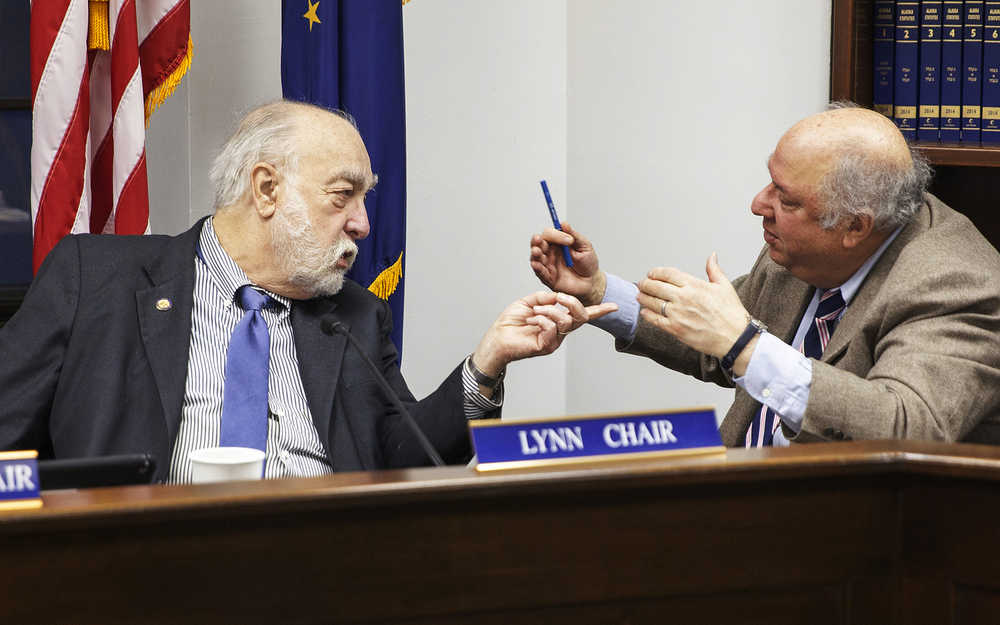JUNEAU — State lawmakers are considering a bill that would allow Alaskans who have had felony convictions overturned and charges later dismissed to become eligible for the yearly checks most Alaskans receive from the state’s oil wealth.
The measure, HB 242, was inspired by a group of indigenous men whose felony convictions for the 1997 death of a Fairbanks teenager were overturned with the caveat that they not sue government entities, according to its original sponsor.
“It brought the situation to my attention,” said Rep. Bob Lynn, R-Anchorage. “It’s about fairness. It’s about equality. The state screwed up, and the state needs to fix it.”
According to the bill, anyone who was ineligible to receive a Permanent Fund Dividend for any year because of a conviction is eligible to receive that dividend if the person’s criminal conviction is vacated or reversed and the charges on which the convictions were based are later dismissed, or the individual is retried and found not guilty.
During a meeting Tuesday of the House State Affairs committee, Rep. Max Gruenberg, D-Anchorage, questioned Department of Revenue employees about the potential financial effect on the Permanent Fund Divident if the bill were pass.
Sara Race, director of the Permanent Fund Dividend Division of the Department of Revenue, said 18 years’ worth of dividend checks would add up to a payment of just over $27,000 to each of the so-called Fairbanks Four.
Marvin Roberts, Kevin Pease, Eugene Vent and George Frese, also known as the Fairbanks Four, are the only defendants in Alaska to have had their convictions vacated and charges dismissed said Kaci Schroeder, assistant attorney general with the Department of Law’s criminal division, in a legislative research report. Cases in which defendants have had their convictions reversed and charges dismissed are also rare, according to the report.
The three Alaska Native Men and an American Indian had been convicted of second-degree murder, although they’ve maintained their innocence in the death of 15-year-old John Hartman.
Richard Allen, director of Alaska’s Office of Public Advocacy, testified in support of the bill during the hearing. Alaska is one of the few states in the U.S. that doesn’t have a compensation bill for criminals who are wrongfully incarcerated, he said.
“When we have a situation where Alaskans have been incarcerated inappropriately, it seems to me that the least we can do is given them back their dividends that they would have received had they not been in jail,” Allen said.

